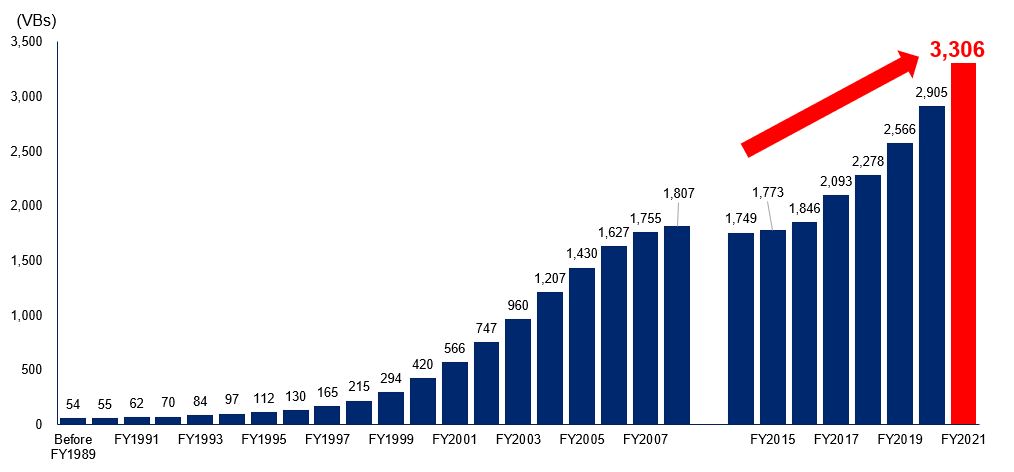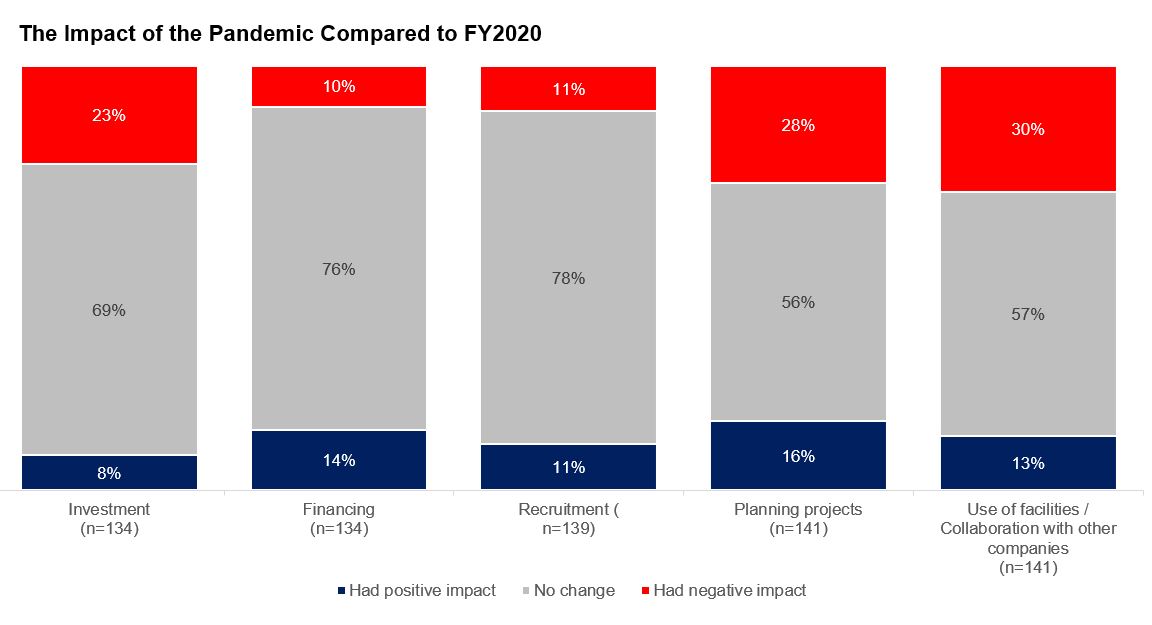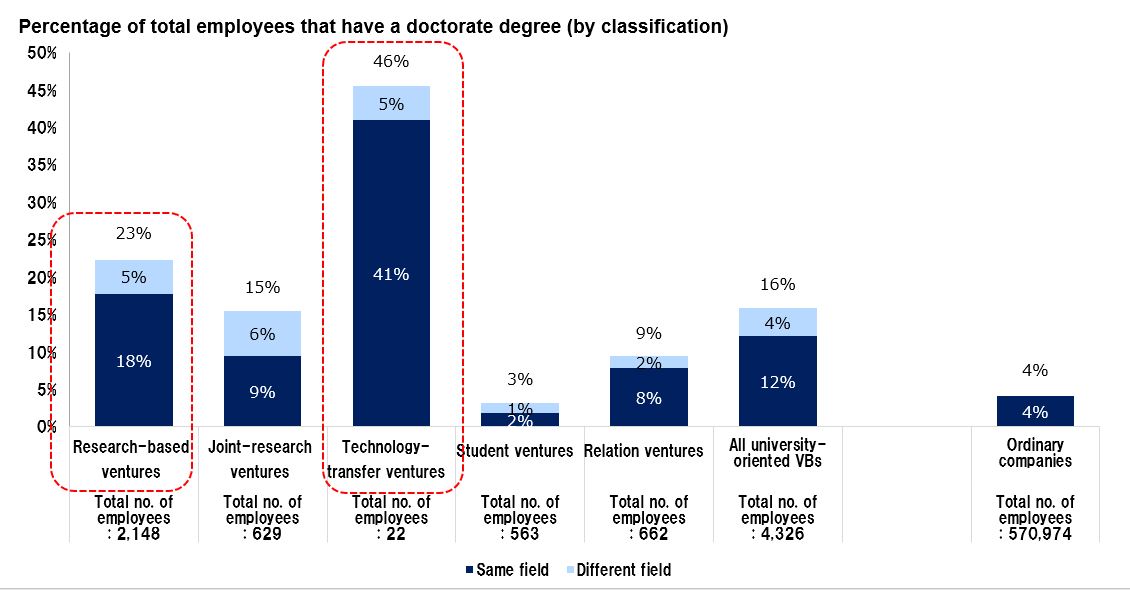- Home
- News Releases
- Back Issues
- May FY2022
- Report Compiled on Results of the Survey on University-Developed Venture Businesses
Report Compiled on Results of the Survey on University-Developed Venture Businesses
May 17, 2022
1. Purpose and background
University-developed VBs are expected to play a leading role in efforts to bring about innovation within the economy and society based on results of innovative research in universities and other organizations. Through a series of surveys, METI aims to ascertain the current situation of the establishment of university-developed VBs from various points of view; examine business environments, demands and other elements; and analyze factors that may contribute to business growth and utilize the results to develop future policies.
2. Summary of the survey results
Changes in the number of university-developed VBs
The number of university-developed VBs confirmed to be operating in the FY2021 survey was 3,306. This was an increase of 401 from the 2,905 confirmed in FY2020—a record-high for both the number of businesses and the number they had increased by.

1. Research-based venture: A newly established venture with the aim of commercializing patents and new technologies and business methods based on research results produced within universities.
2. Joint-research venture: A VB that conducted joint research with a university within five years of its establishment in order to commercialize the technology and know-how of the founders. This includes those that had no special relationship with the university at the time of establishment.
3. Technology-transfer venture: A VB that underwent technology transfer from a university within five years of its establishment in order to maintain and develop an existing business. This includes those that had no special relationship with the university at the time of establishment.
4. Student venture: A student VB that has a deep relationship with a university. This applies only to those that have a relationship with current students or had a relationship in the past.
5. Relation venture: A VB that has a deep relationship with a university (e.g., is funded by a university).
Number of newly established university-developed VBs per university
Following on from the FY2020 survey, the University of Tokyo still has the most university-developed VBs, while other universities, such as Kyoto University, the University of Tsukuba, and Keio University, have also made significant growth. This shows that many universities are making significant strides in fostering the creation of new VBs.
| Ranking (Ranking of the previous fiscal year) |
Name of university | FY2019 | FY2020 | FY2021 |
|---|---|---|---|---|
| 1 (1) | University of Tokyo | 268 | 323 | 329 |
| 2 (2) | Kyoto University | 191 | 222 | 242 |
| 3 (3) | Osaka University | 141 | 168 | 180 |
| 4 (4) | University of Tsukuba | 114 | 146 | 178 |
| 5 (10) | Keio University | 85 | 90 | 175 |
| 6 (5) | Tohoku University | 121 | 145 | 157 |
| 7 (7) | Tokyo University of Science | 30 | 111 | 126 |
| 8 (6) | Kyushu University | 117 | 124 | 120 |
| 9 (8) | Nagoya University | 94 | 109 | 116 |
| 10 (9) | Tokyo Institute of Technology | 75 | 98 | 108 |
Analysis of the impact of the pandemic
When asking about the impact of COVID-19 on university-developed VBs compared to last year, the common response was "There was no change." However, "Use of facilities / collaboration with other companies," "Planning projects," and "Investments" saw more negative impacts than positive.

Analysis of the performance of human resources with a doctorate degree in university-developed VBs
The ratio of human resources with a doctorate degree among employees of university-developed VBs is higher than the number among researchers in ordinary companies, especially in research-based and technology-transfer ventures. This shows that human resources with a doctorate degree are being actively utilized in university-developed VBs.

3. Database on University-Developed Venture Businesses
The Database on University-Developed Venture Businesses publishes information on university-developed VBs. It has been updated based on the results of the FY2021 survey. Please refer to it.
- Database on University-Oriented Venture Businesses: URL
Related Documents
Division in Charge
Industry-University Collaboration Office, Industrial Science and Technology Policy and Environment Bureau